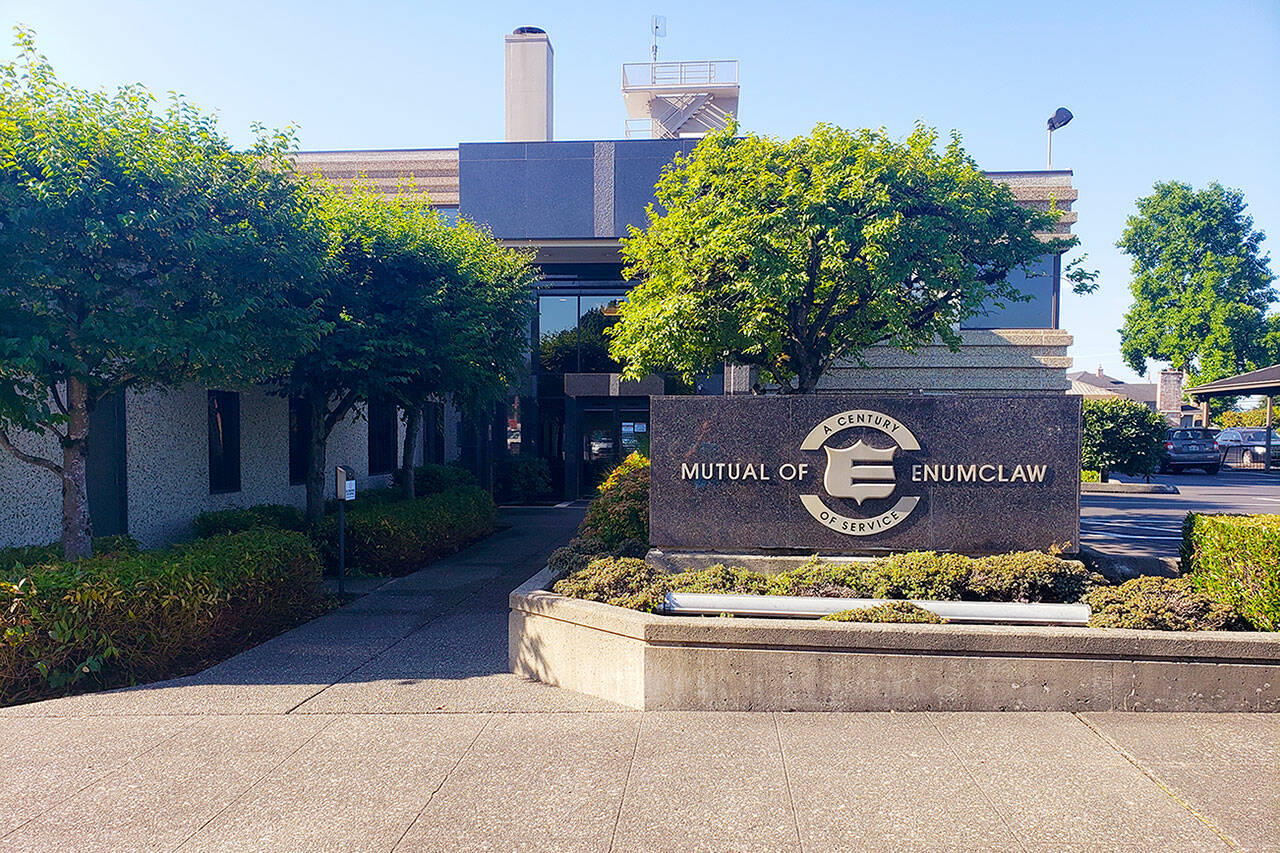Mutual of Enumclaw has successfully staved off a 2020 lawsuit demanding it cover the cost of lost business due to the COVID-19 pandemic.
The Washington state Supreme Court ruled in the insurance company’s favor on Aug. 25, upholding lower court decisions.
The lawsuit stemmed from Gov. Jay Inslee’s 2020 proclamation prohibiting nonemergency medical procedures, including dental care.
Dentists Sarah Hill and Joseph Stout, who run Hill and Stout PLLC in Oak Harbor, had bought a property insurance policy from Mutual of Enumclaw prior to the pandemic that covered direct physical loss of or damage to their properties. When Inslee then prohibited nonemergency procedures, Hill and Stout limited their business, and submitted a claim of lost business to their insurance company.
Mutual of Enumclaw did not accept their claim, given their properties sustained no damage or loss. Additionally, a clause in the policy specifically excluded damages caused by a virus.
Hill and Stout then sued the insurance company in April 2020, claiming their property “‘sustained direct physical loss or damage as a result of the proclamations and orders’,” court documents read. “’[D]irect physical loss’ of property can reasonably be interpreted to include the loss of the ability to use property or suffering the ‘deprivation’ of such property.”
Mutual of Enumclaw disagreed, arguing that the policy “requir[es] that something physically happened to the covered property” and added that Hill and Stout had admitted no such physical change happened to their offices.
A trial judge sided with Mutual of Enumclaw, granting summary judgement; Judge Samuel Chung ruled “that the coverage language requires some external force that causes alteration or direct physical change to the covered properties.”
Hill and Stout appealed the summary judgement to the state Supreme Court, which upheld Chung’s ruling.
“It is unreasonable to read ‘direct physical loss of… property’ in a property insurance policy to include constructive loss of intended use of property. Such loss is not ‘physical’,” Judge Helen Whitener wrote, adding that even if that were not the case, the virus exclusion clause meant Hill and Stout were not covered under their policy.
“We agree with HS that there are likely cases in which there is no physical alteration to the property but there is a direct physical loss under a theory of loss of functionality,” Whitener continued, giving examples such as imminent danger to the property, contamination with a problematic substance, and lack of physical prevention from using the property. “However, this case is not one of them… HS’s claim also fails because there is no physical loss of functionality to the property.”
The Hill and Stout v. Mutual of Enumclaw case appears to have had potential to greatly affect similar property damage claims; the plaintiffs, after filing the case, amended it to include a putative class action, meaning if the court ruled in the dentists’ favor, a class action lawsuit could have been filed.
“We are pleased with the Washington Supreme Court’s decision. Property insurance insures property, and because nothing happened to Hill & Stout’s offices, the Court correctly found no coverage,” Deborah Stein, who represented Mutual of Enumclaw, said in an email statement. “The Court also correctly recognized that the plain language in Hill & Stout’s policy meant losses caused by a virus weren’t insured.”
The Courier-Herald also reached out to Hill and Stout, but have not received a response.


